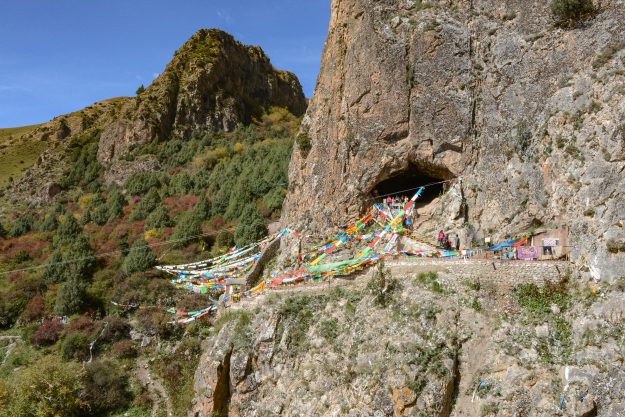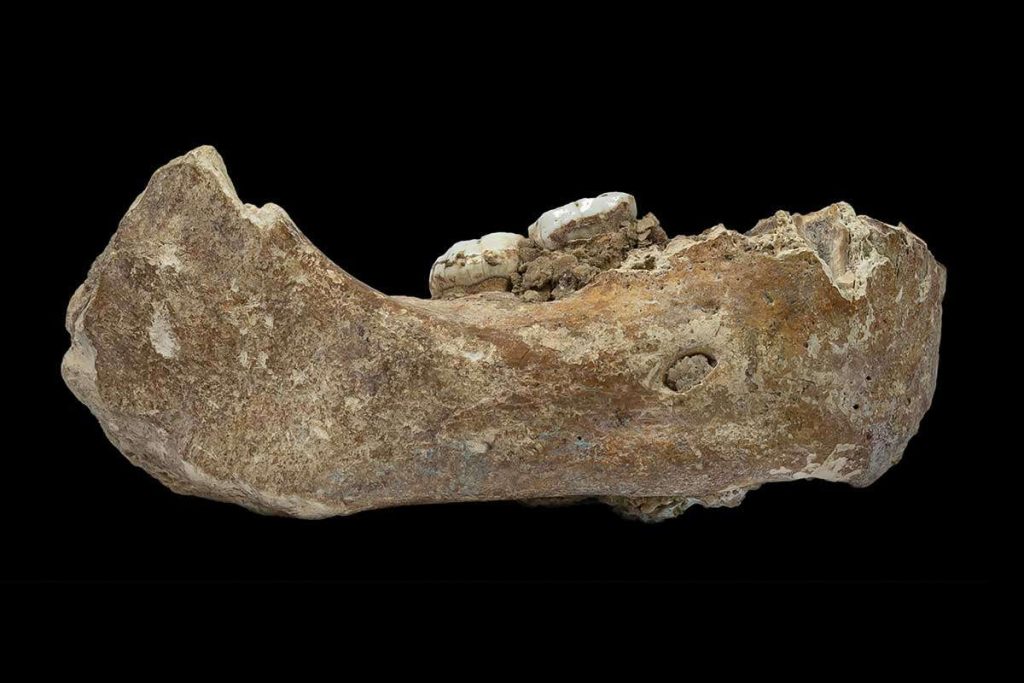Nothing is permanent, so everything is precious. Here’s a selection of some happenings—fleeting or otherwise—in the Buddhist world this week.
Scientists Reveal a Sacred Tibetan Cave’s Ancient Secret
In 1980, a Buddhist monk found half of a fossilized jawbone in a sacred Tibetan cave and gave it to his teacher, who sent it to Lanzhou University, in northwestern China. This week, researchers published their discovery that the jawbone is a 160,000-year-old fossil of a recently discovered species of ancient humans, the Denisovans. The first Denisovan fossil was found inside Denisova cave in Siberia, where the species was identified in 2010, the New York Times reports. The Tibetan jawbone is the first Denisovan fossil found outside of the Denisova cave.
Denisovans shared a common ancestor with the Neanderthals and interbred with them as well as Homo sapiens; their DNA is found in people from East Asia, Australia, and the Pacific islands. The discovery proves that Denisovans lived in Central Asia, and pushes back the first known hominin habitation of Tibet from 40,000 to 160,000 years ago. It also suggests that Tibetans may have acquired their genetic adaptations for living at high altitudes from Denisovan ancestors. Researchers conducted the first excavation in the Baishiya Karst Cave, where the jawbone was found, in 2018 and hope to secure government permits and permission from Buddhist leaders to further excavate the sacred cave, which is 10,700 feet above sea level.

New Royals Enthroned in Japan and Thailand
Emperor Akihito, 85, abdicated Japan’s Chrysanthemum Throne throne on April 30, passing his crown to his son, Emperor Naruhito, 59. The New York Times reports the new emperor pledged to work in service of “the unity of the people of Japan, while always turning my thoughts to the people and standing with them.” The Dalai Lama congratulated Emperor Naruhito. “I warmly admire Your Majesty’s determination to continue your respected father’s … compassionate approach of interacting closely with the public,” the Tibetan leader wrote the new emperor in a letter.
Meanwhile, Thailand is preparing for its first coronation in 70 years; King Maha Vajiralongkorn, 66, the son of the most recent king, became constitutional monarch when his father died in 2016. He will be officially crowned on Saturday, May 4, Voice of America reports. The king enjoys public popularity and inherits the mantle of spiritual leader. He has only limited political power, however, in the constitutional monarchy. The official ceremony will contain both Buddhist and Hindu rituals, according to Reuters; Thailand is a majority Theravada Buddhist country.
E.U. Extends Ban on Arms Sales to Myanmar
The European Union extended a ban on arms sales to Myanmar through April 2020, citing the Rohingya crisis, Al Jazeera reports. According to an official statement, “The sanctions include an embargo on arms and equipment that can be used for internal repression … [and] equipment for monitoring communications that might be used for internal repression.” In December 2018 the EU called on Myanmar to take “meaningful action” to end repression and killing of Rohingya Muslims by members of the Buddhist majority, and it has placed individual sanctions on 14 top military and border officials for their alleged involvement in the human rights crisis.
Related: “Like Fish In A Pool with Little Water”: Who Will Help the Rohingya?
Thank you for subscribing to Tricycle! As a nonprofit, we depend on readers like you to keep Buddhist teachings and practices widely available.
